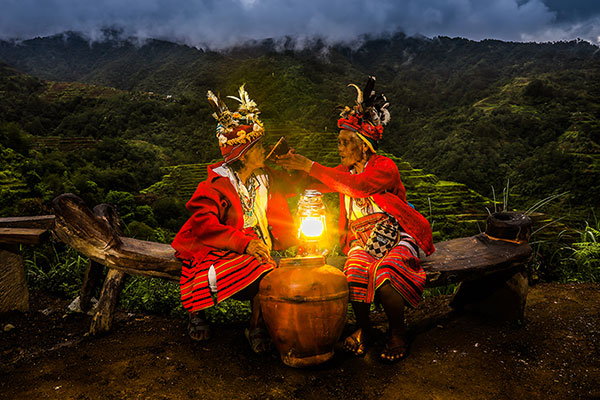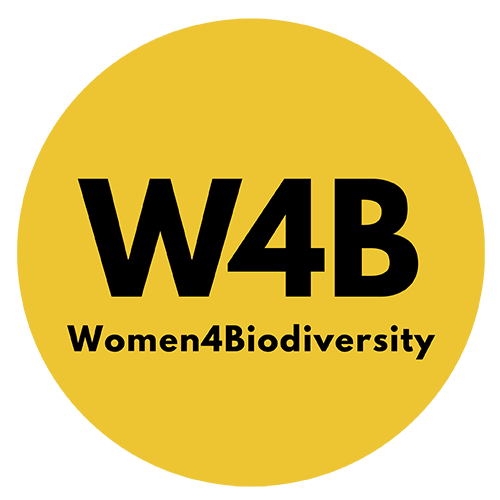To celebrate International Women’s Day 2023 in line with the theme “DigitALL: Innovation and technology for gender equality,” Women4Biodiversity held live interviews on 8 March, with women bridging technology and innovation to rural communities.
Susana Arrechea, global programs director of Californian technology start-up New Sun Road, talked about digital community centers for rural women in her home country Guatemala. On the other hand, Kamala Gurung, gender and natural resources management specialist of the International Centre for Integrated Mountain Development (ICIMOD), highlighted the digital gap between men and women and the importance of making important innovations, such as climate change solutions, accessible to rural women in Nepal.
The International Women’s Day live interviews were also held in keeping with the innovation and technology theme of the Sixty-Seventh Meeting of the Commission on the Status of Women (CSW 67) last 6-17 March. One of the event’s aims was also to advance gender equality by highlighting and bringing attention to stories of rural women being enabled through technology and innovation and to support the gender-responsive implementation of the Kunming-Montreal Global Biodiversity Framework and other decisions adopted at the UN Biodiversity Conference in Canada 7-19 December last year.
Addressing the gender gap in technology
UN data show that around the world, men are 21 per cent more likely to be online than women, and this number sharply increases to 52 per cent for the Global South.
To address this digital gap, Arrechea, through New Sun Road, is working with women in remote rural areas in Guatemala to provide their communities with electricity and internet access through digital community centers. The rural women also receive support and training to manage the centers to provide computer services, internet and digital skills training.
“We help them gain digital literacy and learn how to use technology and the internet in a productive way, not only for social media – which is great – but also for [their other needs],” Arrechea said.
Some women, for example, use the internet to further their knowledge in growing crops for their families and communities and to connect with women leaders from other regions for knowledge exchange.
The women also run the digital community centers and earn money from them by charging fees for internet use and other services like printing.
“These are things they didn’t have access to before that they are now experiencing, so it’s very impactful for them,” Arrechea said.
She also added that the programmes New Sun Road runs in these communities are designed to be effective as they vary according to each community’s specific needs, which they have ascertained through consultations like focus group discussions.
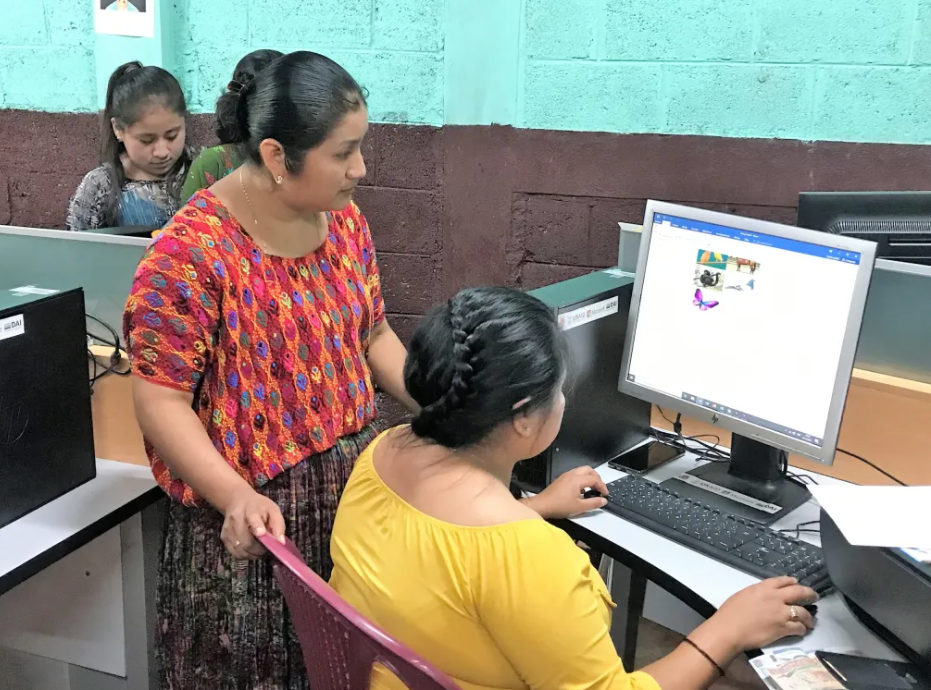
Similarly, to address gender in the digital divide, Gurung emphasized first the need to assess where the community is in terms of access.
“When we’re testing a new technology and we want the project to succeed, for the technology to be adopted by farmers, particularly women or marginalized groups, we have to engage them from the beginning,” Gurung pointed out.
She added that while it is ideal to provide mobile connectivity to rural women for them to access innovations designed for them, ICIMOD has in the meantime found ways to bring crucial information to women with no mobile phones.
Women have ready access to radios, they have discovered in their community consultations in Nepal. To disseminate information on climate change updates like drought forecasts, radio is still essential, Gurung said.
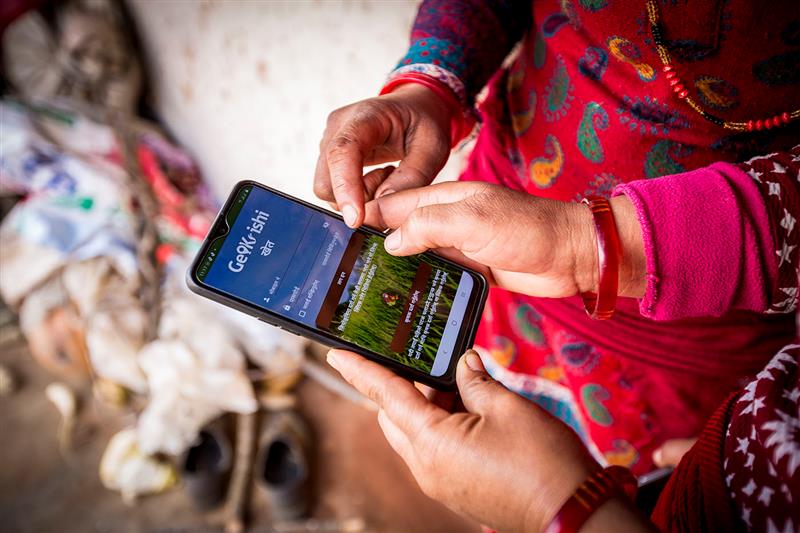
Towards gender-responsive policy and implementation
The work and aspirations of Arrechea and Gurung in the rural communities are related to the gender equality elements in the Kunming-Montreal Global Biodiversity Framework and its monitoring framework for implementation.
For example, in parallel with the global biodiversity framework’s stand-alone gender equality target (Target 23) emphasizing women and girls’ leadership and participation, Arrechea said that the women leading the digital community centers are “democratically elected in their communities.”
However, she said there are real issues that hinder women from full participation, particularly patriarchal stereotypes and gender-based violence.
“It sounds difficult to believe for people in the city, but there are stereotypes [against women] here [in the rural communities],” Arrechea said. To address these, their organization has also been engaging with men and talking about “positive masculinity.” They also train women so that they could be more confident in talking and working with men.
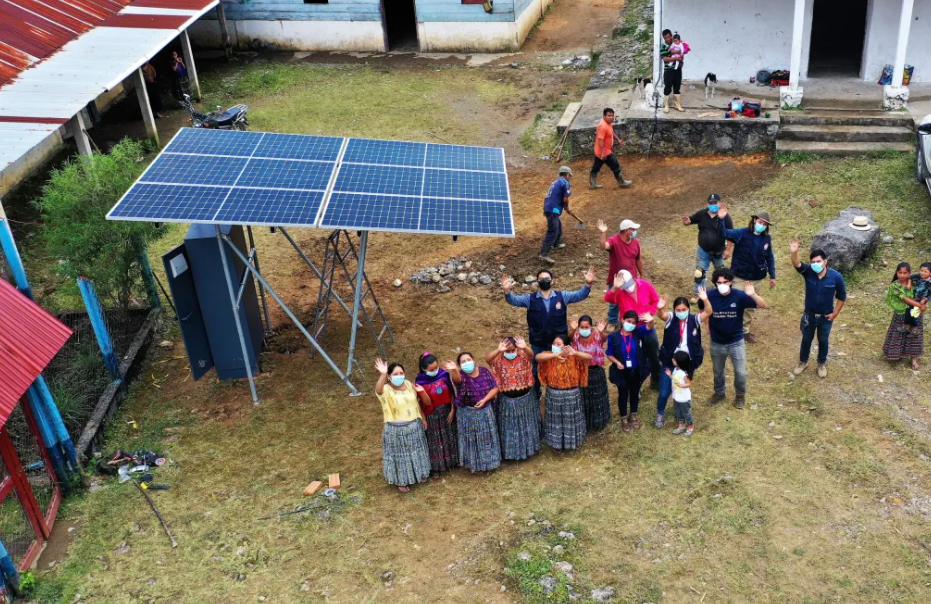
Photo courtesy: New Sun Road
More women, more impact
Despite challenges, both Arrechea and Gurung are looking forward to reaching more women with their work.
Arrechea said at the moment, there are 20 digital community centers in Guatemala. She said their organization plans to set up 10 more in Guatemala. They aim to set up 3,000 centers in the next five years.
“We want to impact the lives of thousands,” Arrechea said.
In relation to this, Gurung talked about engaging more women in science and technology.
“There are already 400 teams, and most of them engage with the government or NGOs,” Gurung said. “We’re trying to empower women, especially young women.”
